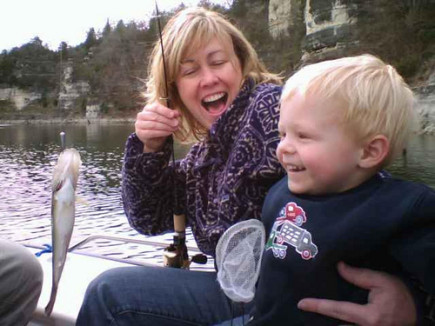"Beware the banality of a busy life."
–Socrates
Since my book Raising Happiness was published, I've met so many unhappy mothers I've come to believe there might just be an epidemic of unhappiness in mothers. Studies have long showed that parents tend to be unhappier than their childless counterparts. (Seven percent unhappier, on average.) Parents tend to feel happier grocery shopping and sleeping than they do when they are with their kids.

Maybe we expect too much happiness out of child-rearing. Should we accept that kids are a lot of work, and they are necessarily going to drain the cheer right out of us? I don't think so, actually.
One significant cause of increased unhappiness among mothers is that we are so damn busy. Everyone asks: How are you? And everyone answers: I am so busy. "We say this to one another with no small degree of pride," writes Wayne Muller in his treatise on rest, "as if our exhaustion were a trophy, our ability to withstand stress a real mark of character. The busier we are, the more important we seem to ourselves and, we imagine, to others."
Busy-ness does not make us happy. Muller reminds us that the Chinese symbol for busy is composed of two characters: heart and killing.
This trouble with the busy-ness of motherhood is that most of the work is instrumental. And the trouble with instrumental work is best illuminated by a famous study by Mihaly Csikszentmihalyi, the author of Flow. Csikszentmihalyi unintentionally induced what looked like text-book cases of generalized anxiety disorder in his subjects simply by instructing his subjects as follows: from the time you wake up until 9:00 PM, "we would like you to act in a normal way, doing all the things you have to do, but not doing anything that is 'play' or 'non-instrumental.'"
Research subjects could make the beds and wash the dishes, drive carpool, go to work, come home and make dinner, supervise homework and bedtime—any of this sounding familiar?—skipping those moments of enjoyment in the day that bring flow or rest. They avoided those things at work they'd do just for fun, skipped the lovely breather they'd take when the kids are off to school, refrained from juicy-but-not-productive sex when the sun went down.
Following these instructions for just 48 hours produced symptoms of serious anxiety—restlessness, fatigue, difficulty concentrating, irritability, muscle tension—by eliminating flow and play from their lives. In other words, we get anxious when we aren't having fun.
Dan Pink, in his must-read book Drive, writes about what happened to these particular research subjects:
The results were almost immediate. Even at the end of the first day, participants "noticed an increased sluggishness about their behavior." They began complaining of headaches. Most reported difficulty concentrating, with "thoughts [that] wander round in circles without getting anywhere." Some felt sleepy, while others were too agitated to sleep. As Csikszentmihalyi wrote, "After just two days of deprivation…the general deterioration in mood was so advanced that prolonging the experiment would have been unadvisable."
When we strip motherhood of play and flow—as we so often do, just to get everything done—our mood deteriorates. It isn't just worry about our children and endless housework that make us anxious and unhappy; it's that we aren't actually having fun anymore. Fun, rest, relaxation, flow have been squeezed out of our lives in the pursuit of more. More sports for our kids, more homework, more driving to activities, more work so we can earn more money so we can buy more stuff. We are poisoned by the hypnotic belief, writes Muller, that "good things come only through unceasing determination and tireless effort," and so "we can never truly rest."
This year on Mother's Day, I hope we all get to truly rest. I challenge us all to systematically add fun back into our lives. This may mean that we are less productive. I may never get to the bottom of my email box. I may never really figure out how to use twitter. I might not be able to blog more, do more radio shows, or give more talks. I worry that if I don't continue to work myself to the bone that I will not earn enough money to give my kids the education I want to give them.
But of course, this is faulty logic. Over-work—work without rest, that ignores the regular cycle of life, the yin and yang of inhaling and exhaling—does not make us more productive. In fact, in nature, we find that when we let plants or land or hibernating animals rest they are dramatically more productive.
With under two weeks to prepare for Mother's Day, I propose a Happiness Challenge:
- Identify those times during the day when you feel flow. When do you feel most at play, most happy?
- Schedule those things into your life the way you would important meetings or doctor's appointments. My happiest parenting moments tend to come at the end of the day, when my kids tell me about their "3 good things." When I'm going to be out during bedtime, I reschedule this time for right after school —I literally put it on the calendar so that it doesn't get over-written by play-dates and work—so that I don't miss the cuddling and reading and gratitude.
- Identify the things that are making you feel crazy-busy, and cut those things out if you can. This may mean that you stop driving your daughter to that ballet class that sabotages dinner. Other people might need to make some sacrifices for your sanity, too.
- Talk to your "cabinet" – your most important supporters and advisors – and the people who depend on you. Talk to them about the things you are doing to add balance back into your life, so they can support you. This post about why happiness is important in general and this one about why parents' happiness in particular is important might help people who will worry that you are sabotaging your hard-won career, or, maybe worse, that you are sabotaging your children's future by refusing to add one more activity to the calendar. Tell your coworkers and cabinet what you won't be doing, in order that you might have a chance to breathe. Consider that you might be inspiring, rather than disappointing, them.
- Make it public, right here, on this very blog. Commit yourself to these things, and ask your cabinet to commit to supporting you. What things make you happiest as a parent? What are you going to do to add fun and flow and REST back into your life? I will compile your commitments into a newsletter and new post. This is your way of making it happen for yourself, and of paying it forward: you'll be inspiring others to do the same.
I'm meaning to start a social movement here, people. I'm tired, and I know I'm not alone. Parenthood can be one of the most fulfilling and joyful things that we do. Science is giving us lots of clues about the things that make life happier: play, flow, mindfulness, friends, gratitude. But it is up to us to pursue those paths that will, in fact, make us happier.
Perhaps then the next time someone asks me how we are, we won't be compelled to say, "busy."
© 2010 Christine Carter, Ph.D.
References:
Muller, Wayne. (1999). Sabbath: Finding Rest, Renewal, and Delight in Our Busy Lives.
Pink, Daniel. (2009). Drive.
Gilbert, Daniel. (2006). Stumbling on Happiness.
Csikszentmihalyi, Mihaly. (1991). Flow.
© 2010 Christine Carter, Ph.D.
Join the Campaign for 100,000 Happier Parents by signing this simple pledge. Become a fan of Raising Happiness on Facebook. Follow Christine Carter on Twitter Subscribe to the Happiness Matters Podcast on iTunes. Sign up for the Raising Happiness CLASS!

Comments